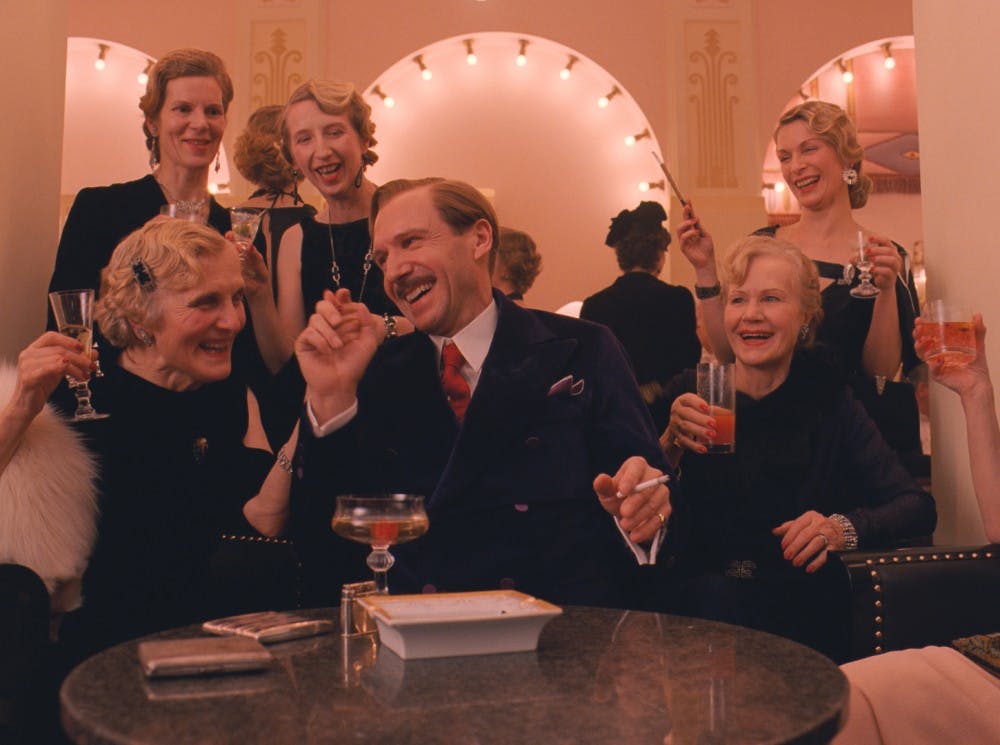In “The Grand Budapest Hotel,” Wes Anderson (“Moonrise Kingdom”) goes to war with a coterie of characters whom occupy a confectionery, ornate residence within the fictional nation of Zubroska.
The film opens with a series of three descending narratives, starting with the young writer (Jude Law, “Side Effects”) who arrives at the Grand Budapest Hotel to find it in disarray. He eventually meets Mr. Moustafa (F. Murray Abraham, “The Good Wife”) who begins to tell the young writer about the history of the hotel. Namely its most colourful companion throughout its best years, M. Gustave (Ralph Finnes, “Coriolanius”).
Anderson’s giant cast of characters is set loose into the world. M. Gustave is a passionate, polyamorous lover of the elderly occupants of the Grand Budapest. He eventually gains a prized painting when a surly, wizening dowager Madame D. (played by Tilda Swinton, “Moonrise Kingdom”) bequeths to him the priceless work of art.
Most of the Madame D’s family are frothing at the brim to have the painting and will do anything to keep it out of M. Gustave’s hands. Zero (Toni Revolori, “The Perfect Game”), M. Gustave’s assistant, and Gustave eventually flich the painting and go on an adventurous triad featuring prison breaks, stories of young love and the allure of paseries with colorful pastel embellishments.
In Anderson’s novel fantasy world, he takes his usual comedic tone and broadens the scope. “The Grand Budapest Hotel” manages to open up Anderson’s usually emotionally hermetically sealed characters to a wider range of emotional resonance.
As “The Grand Budapest Hotel” draws to its conclusion, after countless excellent performances from Adrian Brody (“The Pianist”) as a conniving family memeber of the dead dowager to Jason Schwartzman (“Saving Mr. Banks”) as a forgetful and disorganized lobby boy, Anderson manages to make a compelling portrait of a world still awash in etiquette and manners.
Throughout, “The Grand Budapest Hotel” establishes a wistful whimsy and Anderson’s finicky nature for elaborate, long camera set ups still appears to a large extent to crank out much of the personality. He offsets much of the mannered airtight nature of the production with the proclivity to have characters running, driving, throwing cats out of windows and sledding with swift import. Revolori straight man to Finnes untamed essence makes for some classically influenced comedy.
Checking into “The Grand Budapest Hotel” is easy. Anderson’s admiration and simultaneous disdain for upper class formalities leads to one of his best films.





